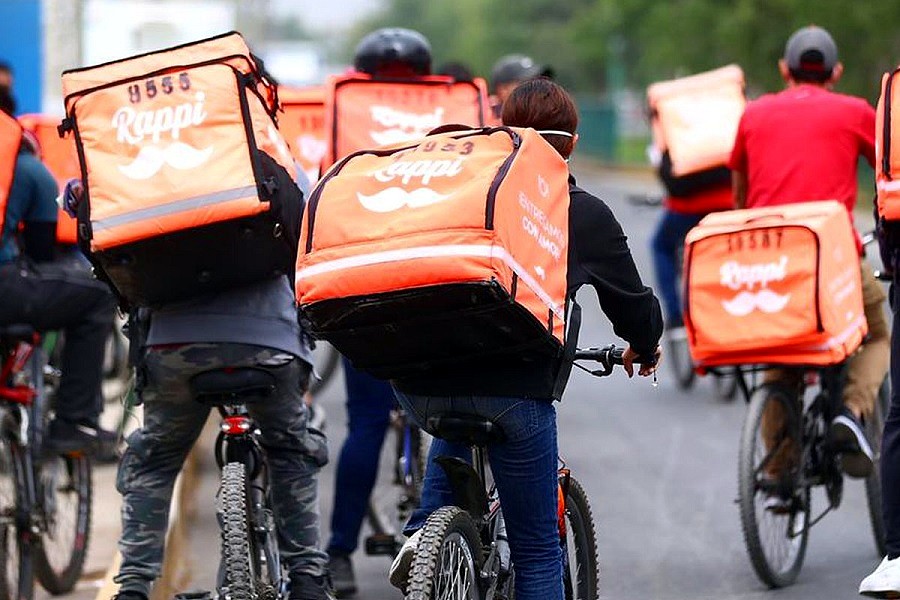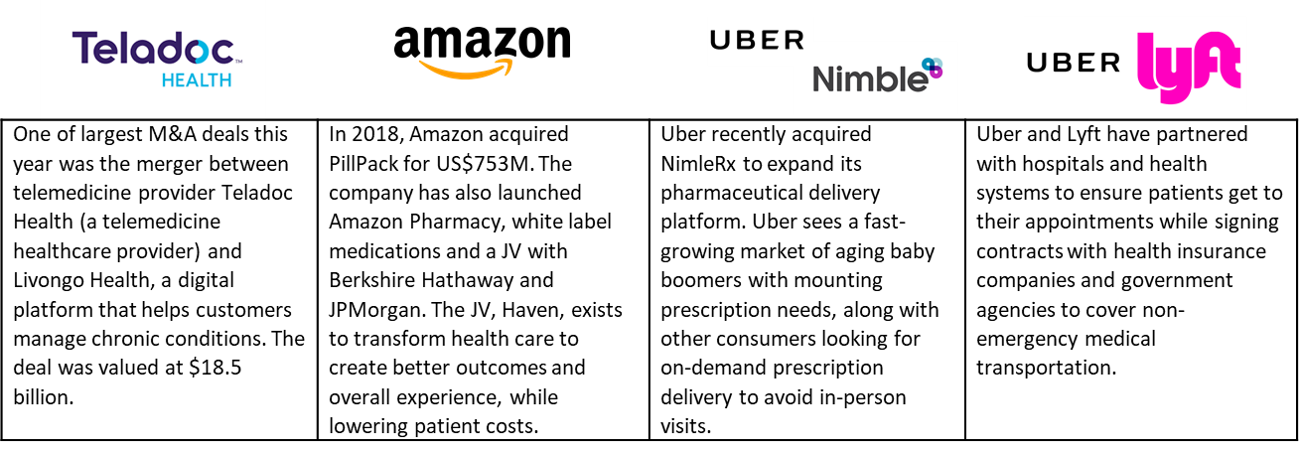Khiron, Rappi and the Power of Last Mile Delivery
Ahead of the Labour Day weekend, Khiron announced a milestone agreement with Rappi SAS, the creator of Latin America’s largest multi-vertical home delivery app. Rappi is a household name in Latin America (akin to Door Dash or Skip the Dishes) and the continent’s first tech unicorn. While Rappi has a commanding presence to the south, many investors in Canada, the US and Europe are just waking up to this large tech company, backed by Softbank Group Corp. and Softbank Vision Fund.
Rappi 101
The recent partnership between Rappi and Khiron expands Khiron’s Kuida CBD platform to new markets in Latin America for a 6-month exclusive. The companies have already launched in Colombia and are expected to begin sales in Costa Rica and Uruguay. Like Amazon, Rappi knows the tastes and preferences of its 10 million monthly users (and how to connect with these customers). We believe the partnership opens Khiron’s products up to a much larger audience and could prove to be a steppingstone toward future developments. Another key benefit is the ability to more freely promote CBD products relative to online platforms like Facebook and Google.


So, who exactly is our newest partner and why is this agreement significant? Read on to find out more!
-
Colombian born, Latin America dominant. Sound familiar? Rappi is an on-demand delivery start-up headquartered in Colombia and operating in major markets in Latin America (Colombia, Argentina, Brazil, Chile, Costa Rica, Ecuador, Mexico, Peru, and Uruguay). The company has a significant distribution network (100,000 retail partners) and serves 10M customers per month in over 100 cities throughout LATAM. In Colombia alone, the company has made over 13M deliveries (roughly equal to 1 for every 4 people in the country!). Given Rappi’s large user base, and less onerous online marketing restrictions, the partnership is expected to increase Khiron’s exposure to online consumers.
-
One last mile. Rappi is leveraging the trend toward home delivery, selling everything from meals to pet products, groceries, liquor, and prescriptions through a super app that delivers in ~30 minutes for a fee. Khiron is particularly interested in Rappi’s CPG and prescription platforms.
-
Show me the money. In April 2019, Softbank Group Corp. and Softbank Vision Fund became major stakeholders in Rappi following a $1 billion dollar investment. At the time, this was the largest investment ever made into a tech start up in Latin America.
-
Lighten your wallet. In 2019, Rappi partnered with Visa to offer prepaid cards in Mexico, Colombia and Brazil, together with a QR-Code based digital wallet called RappiPay™, where users can make P2P transfers and payments. The company plans to expand its financial services offering and in June 2020 Rappi announced a partnership in Mexico with Banorte to revolutionize digital banking services.
-
Why not Wednesdays? As Rappi quickly expands across Latin America, it is building a massive data set. The company hopes the data will help its partners get a better grasp on their customers and revenue trends - for example, why sales are soft on Wednesdays and which products attract which customers. At Khiron, we are data driven and look forward to learning how we can better serve our customers.
Tech trends
The Rappi deal brings up a topic that every business has had to face during COVID-19: how COVID is accelerating tech and in turn transforming consumer expectations. More and more, consumers are demanding instant access and convenience. Given the current environment, along with this latest partnership, we think it’s worthwhile to examine emerging tech trends to better understand how Khiron fits into (and is adapting to) the current digital revolution.
-
Meet me online. Since COVID emerged, traditional retailers are seeing a surge in online sales. Case in point – Abercrombie’s online sales surged 56% in its last quarter, while both Target and Dick's Sporting Goods saw their online sales triple. At Khiron, we understand the need for safety and in response we’ve invested in an end-to-end digital app that allows patients to book, pay, and consult with their doctor from a single platform.
-
Ding-dong! As the pandemic kept consumers home, Uber’s food delivery bookings surged 113% last quarter while ride sharing plummeted 73%. Our partnership with Rappi leverages the home delivery trend, allowing consumers to get their favourite Kuida products in minutes with a click of a button.
-
Healthcare, meet tech. Tech, meet Healthcare. While the movement toward digital health has been growing in recent years, COVID has accelerated this trend significantly. Recent surveys have found that 80% of respondents would choose telemedicine for their next medical appointment if given the option[1]. We see this as a major growth opportunity and are working to remove any friction around our telemedicine platform. Tech companies have also caught on to this growth opportunity and are increasingly entering and/or expanding their presence in the healthcare industry. Below are some examples:

- Data = opportunity.
The opportunity to improve patient outcomes by understanding your customer is significant. As an example, imagine you’ve been purchasing Advil or sleep aids through an online platform. A message pops up asking if you’d like to see a doctor today and with a few clicks of a button, you’ve booked a telemedicine consultation and chatted with a doctor that same day. The doctor determines that medical cannabis may be beneficial for your conditions and your first cannabis prescription is delivered to your home later that day. This scenario is possible when you combine brand, data, convenience, fast delivery and an appropriate regulatory framework.
Bottom Line
Khiron has some big things going for it that could make it a powerful partner for tech companies - a large patient base, trained physicians, an integrated telemedicine app and a user base accustomed to online medical consultations. Khiron is also the dominant provider of a heavily regulated high-growth product category (THC). Cannabis consumption is rising amid the pandemic and customers are increasingly choosing home delivery when possible. By contrast, tech companies have powerful AI tools, customer data and funds for growth, all of which could accelerate growth. When combined, the two platforms could become a powerful force to improve patient outcomes while revolutionizing patient access to medical cannabis.
[1] https://www.itnonline.com/content/new-survey-reveals-high-demand-telemedicine

